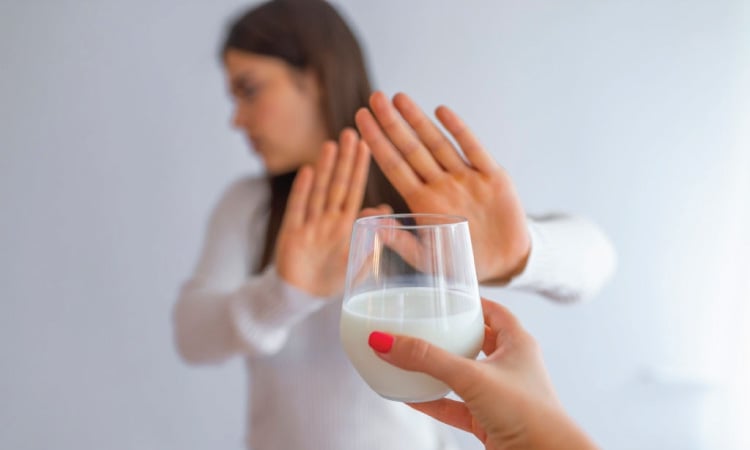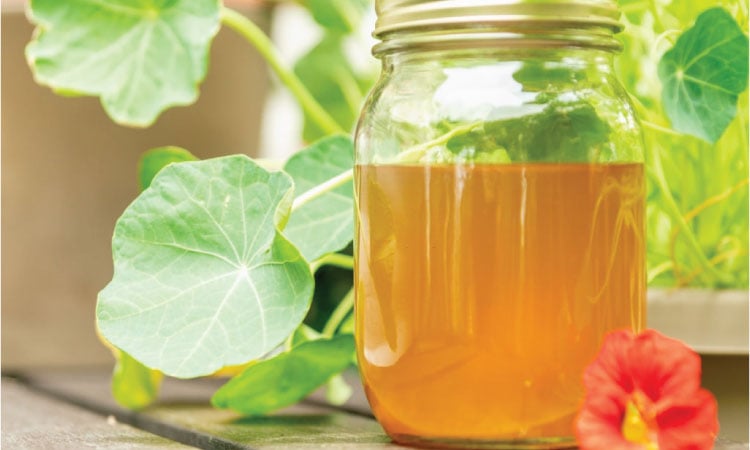The way of life of a woman takes a u-turn when she understands she is carrying a life in her. Food and beverages are the two departments that undergo a drastic change. There will be some things that you can’t have, while there will be some you should have more. And not just foods, you have to exercise caution for what you are drinking during pregnancy as well. Infact, here we will discuss the drinks to avoid during pregnancy.
Most mothers are familiar with certain beverages or drinks to avoid during pregnancy, such as alcohol However, some of the beverages which look innocuous and might seem fine to be consumed during pregnancy may have an adverse effect on the expecting mother and baby in the womb.
This article provides a comprehensive guide on beverages that you should avoid throughout your pregnancy journey.
10 Drinks To Avoid During Pregnancy And Steer Clear Of
We hope you are not a fan of any beverage listed below, because these need to be crossed out completely for your gestation period. So, without further ado, here are 9 beverages that you should probably steer clear of.
1. Wheatgrass juice to be avoided during pregnancy
Wheatgrass, as the name implies, is wheat plant’s leaf- part. It is gathered before the wheat matures and becomes brown. Wheatgrass is a nutrient-dense food. It is loaded with essential amino acids, antioxidants, vitamins and minerals that are highly beneficial for the healthy growth of the fetus and health of the mother. No wonder many expecting mothers want to add it to their pregnancy diet.
Irrespective of its nutritional benefits, wheatgrass juice, comes under drinks to avoid during pregnancy. This is because of the increased risk of mold bacterial contamination. Wheatgrass grows in humid and moist conditions wheatgrass is harvested are usually damp and moist, making it a paradise for various microbes to thrive.
Wheatgrass juice is made from raw wheatgrass. Therefore the bacteria and molds in this leaves, easily find their way into the juice. When pregnant women consume this juice, it can lead to vomiting and diarrhoea. This causes a massive imbalance in the nutrients present in her body.
Some studies also suggest that wheatgrass intake during pregnancy can result in a miscarriage. This debatably healthy beverage can also cause impairment in the unborn baby. Therefore it is safe to stay away from wheatgrass shots during pregnancy.
Calculate Due Date With LMP
2. Aerated beverages
Aerated beverages, also cutely named as “soft drinks”, are not “soft” enough as far as the pregnancy is concerned. Aerated drinks are excellent thirst quenchers. Be it cola flavoured or fruit flavoured, and everyone longs for it in a scorching sunny day. It is a part of the majority of parties and occasions.
However, as already mentioned, soft drinks are not soft enough on your health, especially during pregnancy. These beverages are not only loaded with caffeine but also contain a harmful chemical called quinine.
This combination of caffeine and quinine in soft drinks can be perilous for a pregnant woman, especially if taken in large quantities or if she has a habit of consuming it every day.
Not to mention many energy drink companies use ingredients that are not mentioned in the label. It isn’t easy to regulate these drinks properly. So, the next time you reach for that can of Pepsi, don’t.
3. Coffee during pregnancy
Nothing is refreshing as a cup of coffee. That’s why drinking coffee is usually an unavoidable part of the morning routine for many people. Including me, for that matter
Nonetheless, it is advised to abstain from drinking it completely during pregnancy. This was a shocker for me as well. However, since many people will then start going through mild withdrawal, you can gradually reduce your coffee consumption. Try to keep it to less than 2 cups a day.
Avoidance of coffee is especially important in the first trimester. During this time, the risk of the caffeine in coffee, causing an impromptu miscarriage is significantly higher than in later weeks. It can also cause several other issues for the fetus.
4. Milk or juices that are not pasteurized

a) Drinking unpasteurized milk during pregnancy
Milk is loaded with calcium and phosphorous, elements that are very important for bone health of mother and bone and teeth development of the fetus. However, when it comes to drinking milk during pregnancy, it is important to abstain from drinking raw milk.
The milk contains bacteria called Listeria bacteria that can potentially bring about certain health challenges in people. These bacteria can be more dangerous for expecting mothers.
Related Reading: How To Stay Hydrated During Pregnancy?
These bacteria can bring about an infection called listeriosis. Pregnant women are more prone to this infection because of low immunity. Studies have shown that listeriosis can adversely affect unborn babies. In severe cases, it can even result in fetal death.
b) Drinking unpasteurized juice during pregnancy
Just like milk, juices are also loaded with beneficiary nutrients for a pregnant woman. Again, similar to milk, juices like fresh-squeezed orange juice can harbour dangerous bacteria as well. Bacteria in these drinks can easily get into the baby via placenta and cause irretrievable issues. It more often gets in the way of neurological development of the fetus.
Therefore it is always safe not to drink unpasteurized milk and juices during pregnancy.
How to make sure the milk and fruit juices are safe?
Only the non-pasteurized variants of milk and fruit juices are unsafe during pregnancy. During the pasteurization process, it will eliminate various bacteria and microbes present in these drinks.
- Always make sure you read labels thoroughly before buying juice or milk
- Most of the top branded tetra packed juice available in the market will be a pasteurized variant (heat through high temperature and then cooled
- Never buy freshly squeezed juice from juice bars
- If you like to drink freshly squeezed juice, prepare it at home. Wash the juice thoroughly before preparing juice
- Never choose beverages labelled, fresh-squeezed. This indicates the beverage is unpasteurized and can be potentially contaminated with perilous bacteria such as E. coli
5. Diet soda – drink to avoid during pregnancy
Drinking diet soda is a big NO during pregnancy. Not only these aerated drinks are flooded with caffeine, but it also has a substance called saccharine. It is nothing but an artificial sweetener. This chemical is very dangerous when it comes to pregnancy.
Saccharine can potentially find its way through the placenta and reach the baby. Increased level of this artificial sweetener in the blood of the mother can adversely affect the fetus’s growth and development. It can even cause congenital disabilities.
Therefore, to bypass the harmful effect of caffeine you choose to drink a caffeine-free soda, you will not be able to bypass the harmful effect of artificial sweetener. Even though occasional diet soda intake may not cause any harm, regular consumption will definitely affect the normal progression of pregnancy.
Studies show that drinking artificially sweetened beverages like diet soda increases the risk of preterm labour and delivery.
6. Alcohol during pregnancy
When it comes to drinks to avoid during pregnancy, alcohol is the only beverage that never skips anyone’s mind. And, yes, it is the first drink you should avoid when your pregnancy test turns positive.
Still, many mothers think that consuming little alcohol might cause no harm to the baby in the womb. This is not true. Alcohol easily gets into the baby’s system. Even though the quantity might be little for you, it can be too much for an unborn baby. A single innocuous shot can result in poor growth and improper brain development in babies.
Alcohol in the mother’s blood increases the risk of birth defects in babies. It can also bring about mental retardation in babies. Studies have proved that the risk of miscarriage and stillbirth increases when the mother drinks alcohol.
It has also been found that drinking alcohol during pregnancy increases the risk of fetal alcohol spectrum disorders (FASDs). FASD is characterized by facial deformities, poor memory, speech and language delay, cardiac issues, low IQ, etc.
7. Green tea during pregnancy
This may come as a shock to you. After all, green tea is pretty famous as an answer to many health issues. But during pregnancy, it is best to steer clear of this tasty tea.
This is mainly because of the amount of caffeine in it. This, in large amounts, can be deadly for the baby. Green tea also increases your metabolism, which may sound good, but really isn’t advisable for a pregnant woman.
Related Reading: Can I Drink Green Tea During Pregnancy?
Green tea can also lead to folic acid deficiency, as it reduces the absorption of folic acid by the body. Folic acid is a must during pregnancy.
All these reasons cement green tea’s place in this list of drinks to avoid during pregnancy.
8. Drinks with too much caffeine content should be avoided
During pregnancy, it is very important to be aware of the sources of caffeine. Most of the drinks that contain caffeine, such as coffee, different types of tea, and soft drinks, pose very real dangers to the already-fragile condition of a pregnant woman and her unborn fetus.
According to most experts, drinking one or two cups of coffee or tea per day is usually acceptable, but going over that amount is thoroughly unwise.
There are many reasons why caffeine is considered detrimental to the health of both pregnant people and unborn babies. One of these reasons is that caffeine disrupts your ability to properly absorb iron, which is an essential nutrient for the development of the baby.
Related Reading: What Teas Are Safe To Drink While Pregnant?
The daily intake of caffeine should be limited to 200mg. This includes all sources of caffeine. Excess consumption of caffeine can result in the narrowing of your blood vessels, hindering the baby’s blood flow. So, all in all, caffeine is NOT GOOD AT ALL.
Many soon-to-be mothers will be tempted to a nice big glass of coke or a refreshing cup of iced tea, but it is proven to be sensible to abstain from such drinks during pregnancy.
10. Kombucha during pregnancy

Kombucha is a nutritious and healthy tea that is well-liked by most people. It is preferred by many over other drinks due to its many health benefits. But is it safe for a pregnant woman to drink? Not quite.
The reason for this is pretty obvious once you delve into the ingredients used. While Kombucha cannot really be considered alcoholic, alcohol is a constituent of the drink. It can contain up to 0.5% alcohol.
While this isn’t a lot, any pregnant woman knows that alcohol is a huge no-no when you are carrying a child. Even the tiniest bit of alcohol is too much.
Some of the other reasons why Kombucha is included in the drinks to avoid during pregnancy are:
- As a type of tea, Kombucha contains caffeine, which is known to be detrimental to the fetus’ health in many ways.
- Kombucha is often unpasteurized. This means that it can contain different kinds of bacteria that can be harmful to both mother and child.
Conclusion
Most women already know that moderation is the key when navigating a healthy and relaxed pregnancy diet. However, there are some specific foods – and drinks – that you should probably completely avoid.
These drinks to avoid during pregnancy mainly include caffeinated drinks, unpasteurized drinks and aerated drinks. These drinks contain specific components that are unhealthy and dangerous for the pregnant woman and her child.
Other potentially deadly drinks you should avoid include possibly contaminants, such as untested tap water. Proper research on the things you are thinking of, including in your diet can help you avoid disaster and create a safe and stress-free pregnancy.

